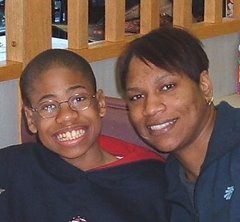MEDIA ADVISORY
OFFICE OF CONGRESSMAN DAN BURTON
FIFTH DISTRICT, INDIANA
2185 Rayburn House Office Building
Washington, D.C. 20515
(202)-225-2276
FAX (202)-225-0016
FOR IMMEDIATE RELEASE
MARCH 16, 2005
REP. BURTON INTRODUCES
NATIONAL VACCINE INJURY COMPENSATION PROGRAM
IMPROVEMENT ACT OF 2005
Washington, D.C. - Congressman Dan Burton (R-IN-5), formally introduced the National Vaccine Injury Compensation Program Improvement Act of 2005 (H.R.1349) in the U.S. House of Representatives last night. "The Vaccine Injury Compensation Program (VICP) was designed back in 1988 to be a non-adversarial alternative to civil litigation," stated Congressman Burton. "Seventeen years later, the reality is that the system has become quite litigious and there are some serious problems with the program. I am re-introducing this important legislation to address the fairness and accessibility issues vaccine-injured families are facing." Continued Congressman Burton, "Specifically, my legislation seeks to amend the current VICP rules by extending the statute of limitations, increasing the base amount of funding available to those injured, and providing a critical two-year look back provision for families who previously missed the filing deadlines."The National Vaccine Injury Compensation Program Improvement Act of 2005 (H.R. 1349) is tri-partisan legislation - currently with a dozen co-sponsors - that builds upon recommendations to improve the VICP as outlined by the Center for Disease Control and Prevention's (CDC's) Advisory Commission on Childhood Vaccines. The bill seeks to:
· Extend the statute of limitations for seeking compensation to six years from the date of injury. Under current law, families must file within two years of a child's death or three years of a child's injury.
· Provide a one-time, two-year period for families with post-1988 injuries to file a petition if they were previously excluded from doing so because they missed the statute of limitations.
· Allow for the payment of interim attorney's fees and legal costs while a petition is being adjudicated. The costs of assembling the necessary medical records and obtaining expert witnesses are substantial. Under current law, these costs, as well as attorney's fees, are not reimbursed until a case is fully resolved, which often times takes three to seven years. Some cases have taken ten years to resolve and for reimbursements to be made.
· Increase compensation for future lost earnings for injured children. Under current law, compensation is based on the average weekly earnings of full and part-time workers as determined by the Bureau of Labor Statistics. This bill would specify that only full-time workers should be used in the calculation.
· Increase the level of compensation to a family after a vaccine-related death from $250,000 to $300,000. The death benefit has remained unchanged since the program's inception fifteen years ago.
· Allow for families of vaccine-injured children to be compensated for the costs of family counseling.
· Create and maintain a guardianship to administer the funds. During his tenure as Chairman of the House Committee on Government Reform (1997-2002) and the Subcommittee on Human Rights & Wellness (2003-2004), Congressman Burton held no fewer than 20 hearings to examine the possible correlation between mercury-containing vaccines and the increasing incidents of autism. Despite the growing body of evidence suggesting such an association is real, many in our Federal health agencies continue to dispute this conclusion. Scientific evidence aside, the numbers simply do not lie. Although autism used to be a rare disease affecting only 1 out of every 10,000 individuals, it now afflicts 1.5 million Americans nationwide. Furthermore, autism is not a fatal disease. Therefore, the families of autistic individuals are facing high-priced medical care for years to come with little to no assistance. Concluded Congressman Burton, "By enacting these common-sense reforms, we can make sure the VICP operates as it was intended to, as a flexible, non-adversarial system that handles claims in an efficient and generous manner so as to avoid the need for civil litigation. I believe creating a stronger VICP is a win-win solution for everyone involved. The families of those afflicted with vaccine injuries will have a fair and user-friendly venue to seek some means of restitution, and pharmaceutical companies will no longer be under the shadow of the threat of costly and potentially industry-crippling class-action lawsuits. Embracing this solution would be good for the industry as well as society." "The National Vaccine Injury Compensation Program has helped thousands of Americans who have suffered injuries from vaccines, however, there are many families and individuals that continue to suffer unnecessarily," said Congressman Frank Pallone, Jr., the lead Democratic co-sponsor. "I am proud to support this legislation because it will improve the current system and ensure fair and timely recourse for the devastating events that can result from vaccinations." The Department of Health and Human Services, upon reviewing the recommendations of the CDC's Advisory Commission on Childhood Vaccines, submitted suggested legislation in 1999, which the Bush administration has since endorsed. H.R. 1349 incorporates most of these recommendations, as well as other recommendations that were put forth during the course of Congressman Burton's six year investigation. For more information regarding Congressman Burton's legislative and investigative efforts on Federal vaccine policy, please visit the designated health care page on his website at www.house.gov/burton/wellness.
For more information and resources on autism go to: http://www.autismconcepts.com/.
Forget what you haven't heard… Family site shares news, resources, announcements and free or low-cost ways to help us manage day-to-day living with autism.
Crystal Brown

About Me

- Crystal
- AutismConcepts.com and Child-Autism-Parent-Cafe.com share a large collection of useful autism information, resources, and how-to articles written by authors who are touched by autism, offering practical solutions to families. Particularly minority and underserved families and caregivers who may not know what to do or where to go for help.
MJ And Me

Blog Archive
-
▼
2005
(194)
-
▼
March
(44)
- Signs of autism can be seen in infants
- Study: Autism linked to mirror neuron dysfunction
- The David Center Scholarship for Parents or Guardians
- Autism's echoes fill this home (Article on family ...
- Autism - Mercury Poisoning, Epidemic levels breach...
- Mass Drugging of School children: The Dark Secret ...
- New BOCES Report Cards
- Pick Your Poison - New Republic article on mercury
- Traveling tips for families with an autistic child...
- UC M.I.N.D. Institute Report on Autism Rates in CA
- Videos to IOM Immunization Safety Review Committee...
- Study: Environmental Mercury Release, Special Ed R...
- African-American families more accepting of home s...
- Study: Mercury Pollution, Autism Link Found
- National Vaccine Injury Compensation Program Impro...
- New flu vaccine for kids hits the market
- First Alert Door Alarm
- Autism News Report - FOX News and IMUS
- The Age of Autism: Backward
- Navigating Medicare and Medicaid, 2005: Resource G...
- Key Facts: Race, Ethnicity & Medical Care
- The Role of Health Coverage for People with Disabi...
- Committee on Government Reform Autism Hearings
- The Mercury Calculator
- New Proposed Bankruptcy Legislation Will Hurt Pare...
- Study: MMR Japan study versus Wakefield and Stott ...
- Study: US study confirms bowel disease findings in...
- Study: Eye contact triggers threat signals in auti...
- U.S. Autism Rates Rise Sharply
- CDC Finally Takes Action on Dangers of Common Chil...
- Racial Inequity in Special Education, Civil Rights...
- Educating Children with Autism, Nat'l Academies of...
- Minorities Get Inferior Care Even if Insured Study...
- Aid for autism
- "Talking About Medicare," New Online Guide
- A User-Friendly Vaccination Schedule
- "Mercury in Medicine" Report, U.S. Gov't. Reform C...
- Individuals with Disabilities Education Act (IDEA)...
- "Special Education: Children with Autism", GAO Report
- Free Online Advocacy Program
- Autism Radio
- Free Newsletters from Autism Research Institute
- Need help getting a computer or Internet service?
- Are We Giving Children All They Need?
-
▼
March
(44)